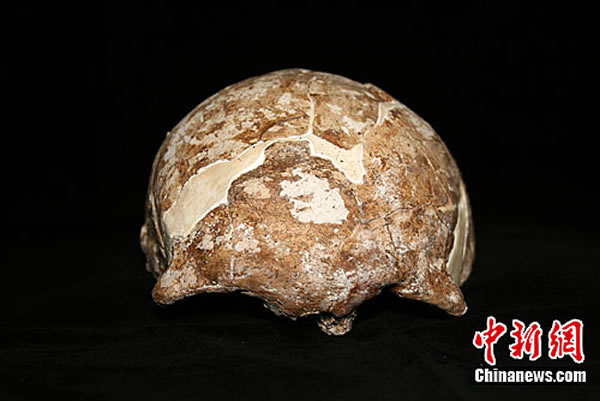 Web Editor: Zang Kejia
comment
Web Editor: Zang Kejia
comment

Kunming (CNS) – Fossils found in two caves in China may represent a previously unknown Stone Age people and offer a rare glimpse into a recent stage of human evolution with implications for our knowledge of the spread of humans in Asia, said researcher Ji Xueping about the startling progress of the study on Thursday.
The Yunnan Institute of Cultural Relics and Archaeology and the Australian University of New South Wales worked together on the study for four years, said Ji, who took part in the program.
The program focus on fossils found separately in a cave near Longlin Village of Guangxi Zhuang Autonomous Region in 1979, and a cave near the city of Mengzi in Yunnan Province in 1989.
According to researchers, the fossils represent a people who existed 14,500 to 11,500 years ago, a period when humans were evolving from their hunter-gatherer era to the agricultural age.
Skulls and teeth from the two locations are very similar to each other and show an unusual mixture of archaic and modern anatomical features, as well as some previously unseen characteristics.
When asked whether the study will change the theory that these are descendants from humans who originated in Africa, Ji responded: "The origin of modern peopling is a complicated issue, and it is too early to conclude whether modern humans originated in Africa alone or in multiple areas."

Copyright ©1999-2011 Chinanews.com. All rights reserved.
Reproduction in whole or in part without permission is prohibited.